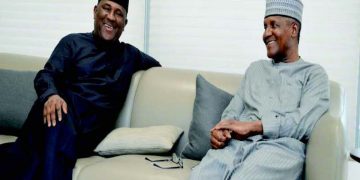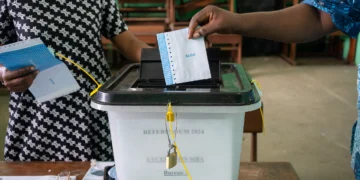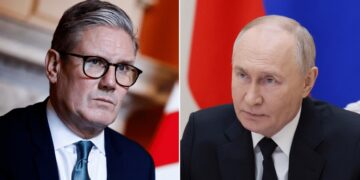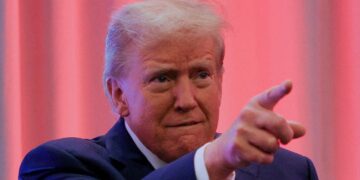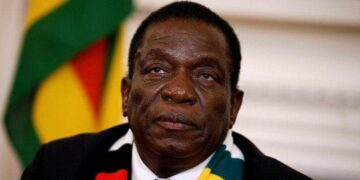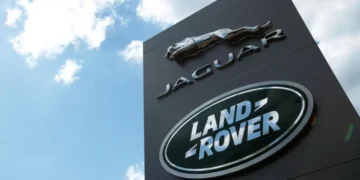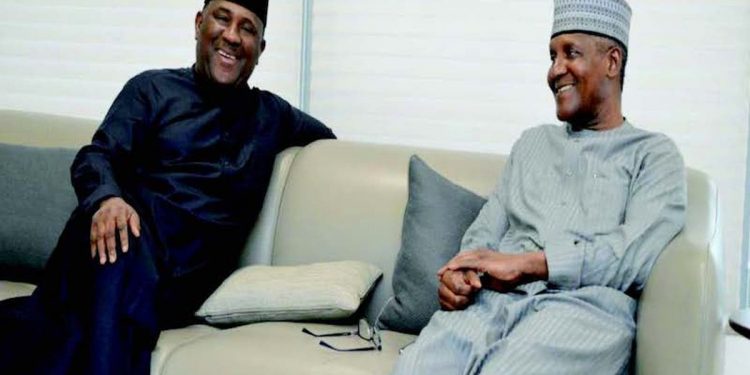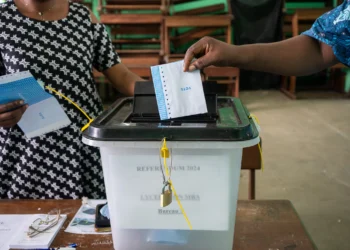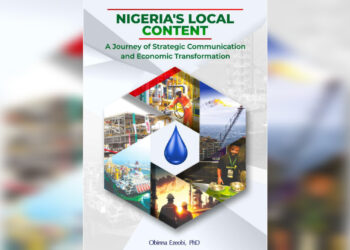By Emmanuel Obisue
For decades and counting, Africa’s richest man, Alhaji Aliko Dangote, owner of West Africa’s largest conglomerate with a net worth of $17.8bn, has enjoyed uninterrupted monopoly in the Nigerian economic space. Past and current governments have made it easy for him with favourable policies and enabling environment. As it seems, the market was monopolized as a tool to frustrate Nigerians in many ways by those who enjoy doing it.
Sadly, Dangote’s monopolizing power was never healthy for Nigerians. It seems the man wins by cheating. He is at it again. Bring him to where there’s competition and he’ll cry to his government allies to switch off other industry players just as was done to Ibeto Cement. It will be unwise to believe that Ibeto Clement didn’t meet the criteria set by the Federal Government as claimed. It wasn’t just politically driven, it was more of ethnical sentiments. Today, the price at which Daongote offers cement in Nigeria when compared with what he gives countries like Kenya or Ghana, is annoyingly outrageous. It could be worse when he starts selling fuel.
Dangote’s body language in the last few days suggests that he is scared of fellow Forbes billionaire, Abdul Samad Rabiu’s bold entrance into the market. The owner of BUA Group is not pretending on his intention to compete with Dangote for his own space in the nation’s economy. Both have always enjoyed favourable economic favours from governments. Dangote became Africa’s richest man under economic privilege from the Goodluck Jonathan administration. He has also enjoyed good economic favours from Buhari.
But again, maybe if the duo settle their differences, their alliance may drive Nigeria’s economy to the moon or do the opposite. This age-long rivalry that many thought had long been buried, seem to have been re-ignited. It was a good move by the Kano State Governor Abdullahi Ganduje to firm up to reconcile Dangote and BUA. But why was the same energy not used by the Kano elders to reconcile Ganduje with Kwankwaso and Sanusi? It is not proper that Nigeria’s two leading billionaires are from a particular state and region, whereas those from other regions, especially the South, are frustrated out by the government. Ethnic sentiments aside, Ibeto or Innosson will outdo Dangote or BUA if given same level playing field. The northern business moguls have only thrived on government’s support.
Again, it is also suspicious that after Dangote initiated the rift with BUA over the sugar market, and Ganduje “settled” them, the CBN hastily listed sugar on its restrictions list. The implication is an increase in the cost of sugar, which will be carried on the shoulders of poor masses vis-à-vis the rising inflation rate in the country. For years, Dangote was the king businessmen from the northern empire, but now, a new bride in BUA is on the verge. The kingdom went to war over the throne. But to prevent the kingdom from crumbling, Ganduje waded in. It was a laudable intervention, and timely too, but it was a northern agenda to sustain dominance. It was a strategic move.
Unlike in Nigeria where only Dangote enjoyed the monopoly for decades, South Africa has billionaires in Nicky Oppenheimer, Patrice Motsepe, Johann Rupert and Koos Bekker, all almost afforded with a level playing field. In the heat of the Coronavirus pandemic, South Africa’s President, Cyril Ramaphosa, revealed that the Rupert and Oppenheimer families had each contributed R1 billion to assist small businesses and their employees affected by the pandemic. The Motsepe family which now runs football administration on the African continent, also contributed R1 billion ($57mn). Neighbouring Ghana also has, Charles Ampofo – $1.46 billion, Ernesto Taricone-$1.3 billion, Nabil Edmond Moukarzel – $900 million, Michael Ibrahim – $860 million, Alhaji Mohammed Ahmed Odyamat – $850 million, Irani Family – $800 million, and Kwabena Duffuor – $680 million, all competing favourably. It is only in Nigeria that a single individual from the ruling region, has been upheld by the government to monopolize Nigerians to ransom.
Without doubt, in terms of giving back to society, the BUA Group have an edge over Dangote. Only recently while Nigeria was battling with covid-19, the BUA Group in its philanthropic nature, donated $1bn, with an additional donation of equipment and medical supplies (testing kits and protective gears) given to Abia, Akwa Ibom, Edo, Adamawa, Rivers, Kwara, Sokoto, Lagos and Kano states. Each states received 100,000 protective face mask, 1000 high grade medical protection and isolation gear, 2000 protective goggles, 1000 gloves and 1000 testing kits among the others. Added to this, was a further donation of three fully equipped ambulances and 50,000 reputable face masks to Gombe states by BUA. On the other hemisphere, Dangote made a personal donation of N1bn, as well as partnerships with Access Bank. His foundation further donated N1.5bn ($3.8m) to the UN Covid-19 basket fund and N200m to the Nigerian government.
BUA’s quest to edge Dangote out of monopoly spurred the latter to petition the Minister of Industry, Trade and Investment accusing the former’s refinery in Bundu Free Trade Zone, Port Harcourt, Rivers state, of undermining the national sugar master plan (NSMP). The NSMP is a policy road map for sugar production introduced in 2013 to achieve self-sufficiency in sugar production and save foreign exchange on the importation of sugar and ethanol. The letter jointly signed by the Dangote and John Coumantaros, Chairman of Flour Mills of Nigeria, accused BUA of operating with impunity by contravening the laws by selling its products locally instead of producing for export alone. They both prayed the minister to investigate the quantity of raw sugar imported by BUA’s sugar refinery and “appropriate penalty in terms of duty at 60 percent and 10 percent levy be imposed, on the company”.
They further called for a fair and discipline implementation of the NSMP by the Nigerian Sugar Development Council (NSDC) the regulator. “Publicly available information suggests that BUA International, one of the players in the sugar industry, has commissioned a sugar plant in Port Harcourt, Rivers State. With the new refinery, the country’s refining capacity goes from 2.75 million metric tonnes to 3.4 million metric tonnes per annum, or from 170 percent over capacity over last year’s import quota to over 210 percent capacity,” the letter read.
Truth be told, these northerners with the backing of a northern dominated federal government have enjoyed the monopoly of importation and destroyed the chances of any southerner striving to do so. It’s a sure bet that if Ibeto gets back his license for cement production, the price of Dangote’s cement will be forced to crash. Meanwhile, BUA must keep on selling sugar locally. When the fight between the two started, many even called for a boycott of Dangote’s products. The price of Dangote cement in Nigeria is wicked, even after adding COT, insurance, export duty, import duty and all. It is still double the price in Nigeria where it is being manufactured when compared to what is offered in neighbouring countries.
As part of more efforts to hold Nigeria to ransom, both brothers are looking to invest heavily in Nigeria’s oil sector, with Dangote’s 650,000bpd refinery in Lekki, Lagos soon to be ready for business, while BUA Group is at the final stages of paper work to build a 200,000bpd refinery in Akwa Ibom state. Call it a healthy competition, a rivalry, or even a power tussle, the truth is that Nigerian billionaires are the kings of the Nigerian market, especially as they have been allowed to become so.
With a squabble cenetring on compliance concerns relating to the backward integration policy of the Nigerian sugar industry, adding to an already messy dispute over the ownership of a cement site as well as both companies building Africa’s largest refinery, a heightened crisis between both parties are expected. In June 2020 BUA Cement got a restraining order against Dangote Cement, after the police invaded its three sites in Obu Okpella, Edo State. BUA has its highest-producing cement plant in the area and had accused Dangote of blocking access to the mines – which are a rich source of essential material in the manufacturing of cement; Dangote, on the other hand, claims ownership of the mines.
BUA is moving very fast. Last week, the company finalized paper works with France’s hydrocarbons group, Axens, for the development of its 200,000 barrels per day refinery and petrochemical plant in Akwa Ibom State. Following Dangote closely, BUA’s fortune stands at $5.5 billion, according to Forbes. Dangote Cement has a market capitalization of N3.65 trillion, while BUA stands at N2.49 trillion. With a net income of N276bn dividend by the issued share of N17bn, earning per share is N16.14 thus an investor earns N16. Following the same calculations, a BUA investor earns N2 per share. Despite being ahead of the BUA Group in financial ratings, it has become obvious that the Dangote conglomerate is threatened by BUA’s steady growth in Nigeria’s market. Dangote’s monopoly is about to be taken away from him. Although Dangote denies this, claiming that he and BUA have a healthy competition, no one expects a ‘fish to be taken from the mouth of a Cat without a fight back’. Hence, the current back and forth between the two business moguls is a visible power tussle.
BUA’s conscience must also be searched to answer questions as to whether it is obsessed with, and is witch-hunting Dangote. Why is BUA getting into every business that Dangote has a grip on? Despite healthy competition being encouraged, BUA’s move to establish a refinery after Dangote’s is almost completed, raises more questions as to his motives. Why is the plan to build private refineries only spear-headed by the north? Business being fronted by the duo are those which the north has no natural resources to produce, thus, their offices are in the South and West. Both being indigenes of Kano state, why are they avoiding setting up major headquarters in the north and what are the effects of having two business mogul from one state on others states?
